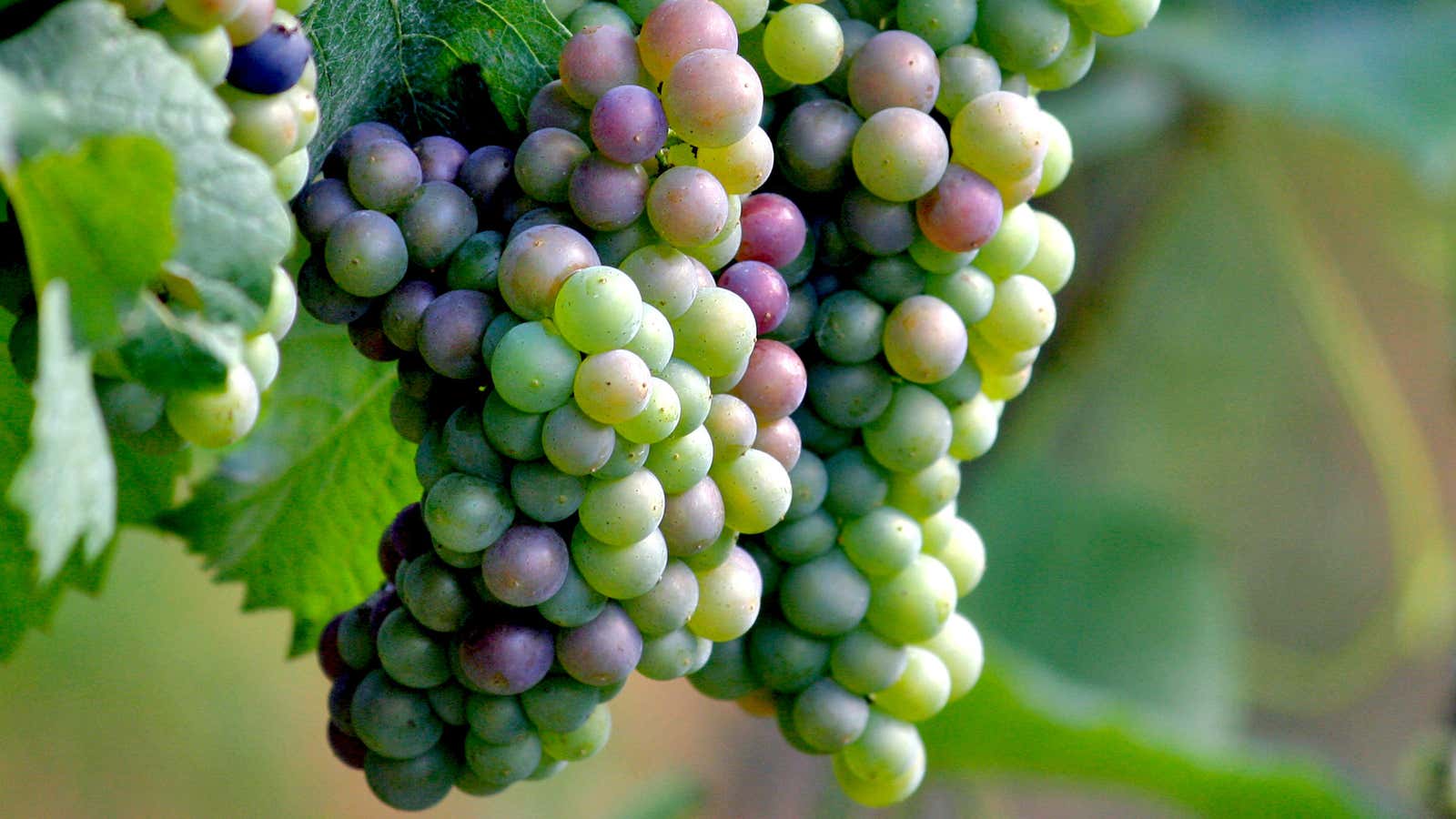The drought in California has been, to say the least, hard on the state’s agricultural industry.
There have been reports about possible impacts on supplies of foods like rice and avocados, just to name a couple. And while this type of speculation is sometimes overblown (our avocado supply is fine), the impacts of the historic water shortage in the US’s major fruit and vegetable producing state could be far-reaching.
But they might not all be bad: With less water, farmers can actually grow more flavorful fruits.
Last week, organic peach farmer David “Mas” Masumoto told the LA Times that his California farm has been experimenting with a petite peach this year, experimenting with water use cuts of up to 50%. The results, he says, were impressive: “[The peaches are] small this year, but, good god, the flavor is great. It’s fantastic. It’s probably the most intense I’ve ever had.”
(Masumoto, it should be noted, has never been one to skimp on flavor. His peaches are so good that in the 1990s, Alice Waters’ famed Berkeley, California, restaurant, Chez Panisse, served his Sun Crest variety plain as dessert.)
The water shortage means it’s also shaping up to be an excellent year for high-end wine. “The berries have been smaller, but the flavor–the intensity of the sugars–have been greater because of the drought,” Ron Lopp of the California Association of Wine Grape Growers told KPCC, a Southern California public radio station.
The reason for the sweeter fruit is simple: Using less water during specific growth stages, called deficit irrigation, causes mild to moderate water stress, which for many fruit crops results in less water ending up in the fruit, with only minimal effects on sugar production, explains Chris Simmons, an assistant professor at University of California Davis’ College of Agricultural and Environmental Sciences.
The reduced size of the fruit, combined with nearly equivalent sugar production, results in higher sugar concentrations, so it tastes sweeter. (In some crops, though, like leafy greens, the flavor results may be the opposite, because bitter-tasting compounds could become more concentrated.)
In general, many growers tend to overwater their crops, says Diana Cochran, an assistant professor and extension fruit specialist at Iowa State University. That’s something Masumoto acknowledged he had been guilty of as well. But new technology like soil moisture sensors allows growers to determine when watering is necessary. There are upfront costs to these systems, Cochran says, but the price is going down. And while the technology hasn’t been proven with all crops, it will work with many of them.
The downside of deficit irrigation, though, is that it can lower yields by weight because the fruit is smaller, even if it’s also tastier. For many produce varieties, though, says Simmons, “the value added by improved sensory quality may offset the value loss due to decreased yield.”
In other words, when less water makes smaller, more flavorful fruit, consumers might just be willing to pay for it.
The photograph above was taken by Raul Lieberwirth and shared under a Creative Commons license on Flickr. It has been cropped.
